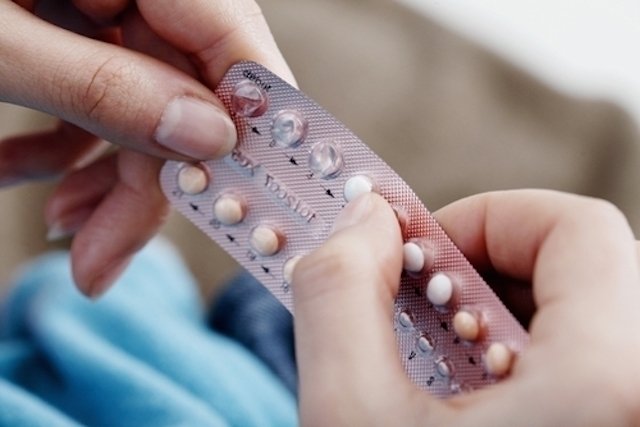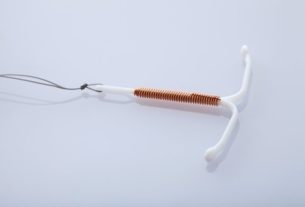Taking antibiotics such as rifampicin or rifapentine, having an intestinal disease such as Crohn’s disease, vomiting or having diarrhea after taking the pill or drinking certain teas can reduce the effect of the contraceptive pill or reduce its effectiveness, increasing the risk of an unwanted pregnancy.
Some signs that may indicate that there is a decrease in the effectiveness of the contraceptive pill include changes such as the absence of menstruation or small bleeding outside the menstrual period, which is one of the clearest signs that the woman is not getting the amount of hormones she needs in her body. bloodstream constantly, and must be communicated to the gynecologist who may recommend an additional contraceptive method or changing the contraceptive to a hormonal implant or IUD, for example.
Furthermore, it is important to consult a gynecologist before starting to use contraceptives, so that a health assessment can be carried out and the best contraceptive method for each woman can be recommended, as well as the correct way of use.

What interferes with the effect of contraceptives
Some factors can reduce the effect of contraceptives, the main ones being:
1. Taking medicine
Some medications can interfere with the effectiveness of oral contraceptives by decreasing their absorption or altering the pill’s metabolism, which can lead to a decrease in the amount of pill hormones in the body, reducing or cutting their effect and include:
- Antibiotics such as rifampicin, rifapentine and rifabutin, used to treat tuberculosis, leprosy and bacterial meningitis;
- Antifungals such as griseofulvin or ketoconazole used to treat skin mycoses;
- Anticonvulsants such as phenobarbital, carbamazepine, oxcarbamazepine, phenytoin, primidone, topiramate or felbamate, used to reduce or eliminate seizures;
- Antiretrovirals such as lopinavir, ritonavir, darunavir, efavirenz or nevirapine, used to treat HIV infection.
Therefore, it is important to talk to the doctor responsible for the treatment to avoid interactions that interfere with the use of contraceptives. Furthermore, when treatment with other medicines is necessary for a short period of time, such as antibiotics or antifungals, or if you experience vomiting or diarrhea after using any antibiotic, you should use a condom during treatment and up to 7 days after treatment. last dose of medicine.
In the case of anticonvulsants or antiretrovirals, which are long-term treatments, you should talk to your doctor so that they can advise you on the use of additional contraceptive methods, in addition to condoms. Check out the complete list of medicines that reduce the effect of contraceptives.
2. Having vomiting or diarrhea
Having an episode of vomiting or diarrhea up to 3 to 4 hours after taking the contraceptive pill reduces the absorption of the contraceptive pill from the intestine, which causes the pill to have its effect diminished or lose its effectiveness completely.
Therefore, if vomiting or diarrhea occurred during this period, it is recommended to take the next pill to guarantee the necessary daily dose to protect yourself from an unwanted pregnancy. However, in case of chronic diarrhea or when it is not possible to control liquid stools for more than 4 hours, you should opt for an additional contraceptive method, such as condoms, or opt for the use of other contraceptive methods such as hormone implants. or the IUD, for example.
3. Diseases or changes in the intestine
Some diseases or changes in the intestine, such as Crohn’s disease or rectocolitis, and even women who have had an ileostomy or a jejunoileal bypass, have a greater risk of becoming pregnant even when using the contraceptive pill because these situations can prevent the intestine from correctly absorbing hormones. pill, thus reducing its effectiveness in protecting against pregnancy.
In this case, it is recommended that the woman use another contraceptive method, such as a condom, hormone implant or IUD to protect herself from an unwanted pregnancy.
4. Forgetting to take the pill
Forgetting to take the contraceptive pill causes a variation in hormone levels in the body, which increases the risk of ovulating, and therefore, forgetting to take the pill reduces the effectiveness of the contraceptive, increasing the risk of getting pregnant.
If you miss 1 day, in the first week of the pack, there is a greater risk of pregnancy because ovulation can happen earlier and sperm can survive in the vaginal canal for up to 5 to 7 days after intimate contact. In this case, you should take it as soon as you remember and then take the next pill at the usual time and use another additional contraceptive method, such as a condom, for example, for the next 7 days.
Furthermore, forgetting to take the pill several times during the month does not allow for an effective contraceptive effect and the risk of pregnancy increases greatly. In this case, you should use a condom throughout the use of the contraceptive pack, until you start a new one and talk to the gynecologist to try to use another contraceptive method that does not need to be taken every day, such as a contraceptive injection, hormonal patch or putting on an IUD, for example.
5. Drink tea
Some teas, such as licorice tea or alfalfa tea, when ingested in large quantities can interfere with the absorption of the contraceptive or alter hormone levels in the body, reducing the effectiveness or cutting off the effect of the contraceptive pill. Therefore, it is not recommended to consume more than 5 cups of tea per day or avoid frequent consumption.
Furthermore, St. John’s wort tea, also known as St. John’s wort, commonly used to combat depression and anxiety, can also interfere with the pill, decreasing its effectiveness, which is why it is not recommended to drink this tea. If you are undergoing treatment with this medicinal plant, you must choose another contraceptive method.
6. Obesity or overweight
Some studies indicate that obesity or overweight can interfere with the way in which the contraceptive pill is metabolized in the body, and its effectiveness may be reduced. Furthermore, the effectiveness of the morning-after pill and transdermal patch is also lower in women who suffer from obesity or overweight.
The ideal is to consult a gynecologist to use a safe contraceptive method such as an IUD, for example, to avoid an unwanted pregnancy.
Can drugs affect the effect of contraceptives?
There is no scientific evidence that the use of drugs can alter the effect of contraceptive pills, as long as they are used properly. However, it is important that condoms are used when you are under the influence of drugs.

Sign up for our newsletter and stay up to date with exclusive news
that can transform your routine!
Warning: Undefined array key "title" in /home/storelat/public_html/wp-content/plugins/link-whisper-premium/templates/frontend/related-posts.php on line 12
Warning: Undefined array key "title_tag" in /home/storelat/public_html/wp-content/plugins/link-whisper-premium/templates/frontend/related-posts.php on line 13



